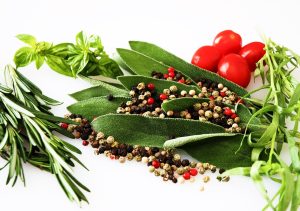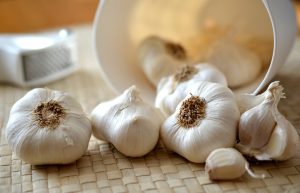 Spices are used in every cuisine in the world to season food, and sometimes to color it or preserve it. Far Eastern cuisines tend to use a range of herbs and spices that grow locally. For other cuisines, spices have to be imported in many cases, and so were very rare and precious in the past.
Spices are used in every cuisine in the world to season food, and sometimes to color it or preserve it. Far Eastern cuisines tend to use a range of herbs and spices that grow locally. For other cuisines, spices have to be imported in many cases, and so were very rare and precious in the past.
Here are some of the most common spices to make it into our supermarkets and onto our tables as modern families explore recipes from around the world.
Allspice
These little balls are similar to cloves but more peppery, and are used in many cuisines around the world.
Bay Leaf
These come from the laurel trees in the Middle East and elsewhere, and are used in Italian and other European cuisines to give a depth of flavor to soups, stews and tomato sauce. Use whole and do not eat.
Caraway Seed
These anise-tasting seeds are used in traditional Jewish (Eastern European) rye bread, Irish soda bread and German sauerkraut and potato salad.
Cardamom
The pods are used whole in Indian cuisine. Remove before eating. The ground-up small black seeds are used sparingly in Scandinavian baked goods to add a savory quality and complement other spices like cloves and cinnamon.
Cayenne Pepper
This is made from dried and ground red chili peppers and adds a bit of heat to Mexican and Indian food.
Cinnamon
This is used in savory Indian dishes and sweet Western dishes and baked goods.
Cloves
These small, twig-like items can be used to add flavor to a roast ham or applesauce. They are also tasty when boiled with hot water and added to mulled wine or cider. They are ground for baking.
Coriander
These seeds are usually ground into a powder and used to add a peppery lemon taste to Mexican, Indian and Thai dishes.
Cumin
This has a peppery taste and is often used with coriander to season the same dishes. It is also popular in North African, Middle Eastern, and Tex-Mex dishes.
Fennel Seed
The seeds are what gives sweet Italian sausage its unique flavor, with a hint of licorice.
 Garlic
Garlic
Garlic is used in almost every cuisine in the world, but is most notable in Italian recipes and on garlic bread.
Ginger
This root can be used raw or dried and powdered. It is a mainstay of Indian and Chinese cooking and the base for gingerbread, ginger snaps and ginger beer, all very popular in England and the Caribbean.
Nutmeg
This a sweet spice with savory notes. It is mostly used in baked goods but is also an essential ingredient in potato pancakes, popular in Jewish cuisine.
Oregano
This light, fragrant herb is a must for all Italian food, from sauce to pizza. It is also used in Mexican food.
Paprika
This is a standard in Eastern European cuisines such as Jewish and Hungarian. It has a mild flavor and a gorgeous red color. It is used in soups and stews, and in noodles with sour cream sauce or atop deviled eggs and potato salad.
Peppercorns
Peppercorns come in a variety of colors, such as black, white, pink, and green. They are a staple on the table of most households, along with salt.
Rosemary
This is popular in European and Middle Eastern cuisine and goes well with lamb and roasted vegetables.
Saffron
Saffron is the most expensive spice in the world. It comes from a certain species of flower. It has a wonderful flavor in rice dishes and colors everything a lovely yellow.
Sage
This is used in a lot of savory pork dishes in Europe and in bread stuffing for the holidays.
Turmeric
This also colors food yellow and is an essential ingredient in Indian cooking.
Thyme
This offers a pleasant, lemony taste to soups and stews and is often combined with rosemary and/or sage in European cooking.
Try these spices and raise your home cooking to a new level.
